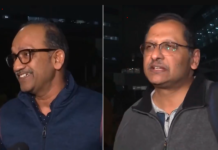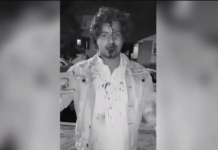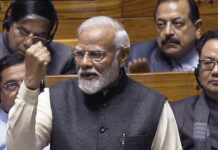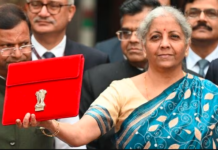For the very first time in our country a surgery like this has taken place successfully. It happened in Kochi’s Amrita Institute of Medical Sciences (AIMS) aprivate hospital that Jith Kumar Saji, a 21-year old young man underwent an elbow-level double hand transplant. This achievement surely can be counted as a progressive step in India’s medical history.
Jith Kumar Saji, who lost both his hands because of electrical burns in the year 2013, comes from a poor family. His farther is a mason and their family hails from a village in Kannaur. After his tragic accident in August, both his hands had to be amputated.
Another person named Raison Sunny, who was of 24 years of age when in an accident he lost the functionality of his brain, is the one whose hands have been transplanted into Jiths body. The surgery took place one month ago and now after being monitored for 30 days post his surgery, Jith has been discharged. He now can live a normal life like before.
Authorities of the hospital stated that, “This is the first time such elbow-level hand transplant had been made in the country.AIMS is the only facility in the country with the capability to conduct hand transplants”
We should definitely make note of the doctors who made impossible thing possible. A team of 25 surgeons of AIMS Plastic and Reconstructive Surgery wing under the guidance of their HODSubramaniaIyer operated a 14 hour long surgery. For their assistance 12 members from the anesthetic team which worked equally hard, also deserve to be congratulated.
When HOD Subramania Iyer was interviewed, post the success of this transplant surgery, he said, “This surgery was technically much more complicated than the previous two hand transplants at Amrita Hospital. For hand transplants above the wrist, the tendons are still connected to each other. But in an elbow-level transplant, these connections have to be made to the muscle mass.
Identification, tagging and connecting the nerves, tendons and arteries were very challenging and that is why forearm transplants have been attempted only a few times in the world.
Regarding Jith’s present condition, the doctors said, “Jith has been undergoing physiotherapy and can use both his elbows. He is even able to eat with the support of special splints and would need to undergo intensive physiotherapy and rehabilitation exercises for at least the next two years for his hand function to return fully.
In addition, he will have to take life-long immunosuppressant medications to prevent rejection of the transplanted hands.”
Economic aspects of this transplant i.e the surgery expenses, were collectively bore by many individual benefactors and philanthropists from Kerala. Now this shows us the extent of positive humanity that breeds in our community. So all in all it’s a wonderful success story of both medical expertise and brotherhood in India.












